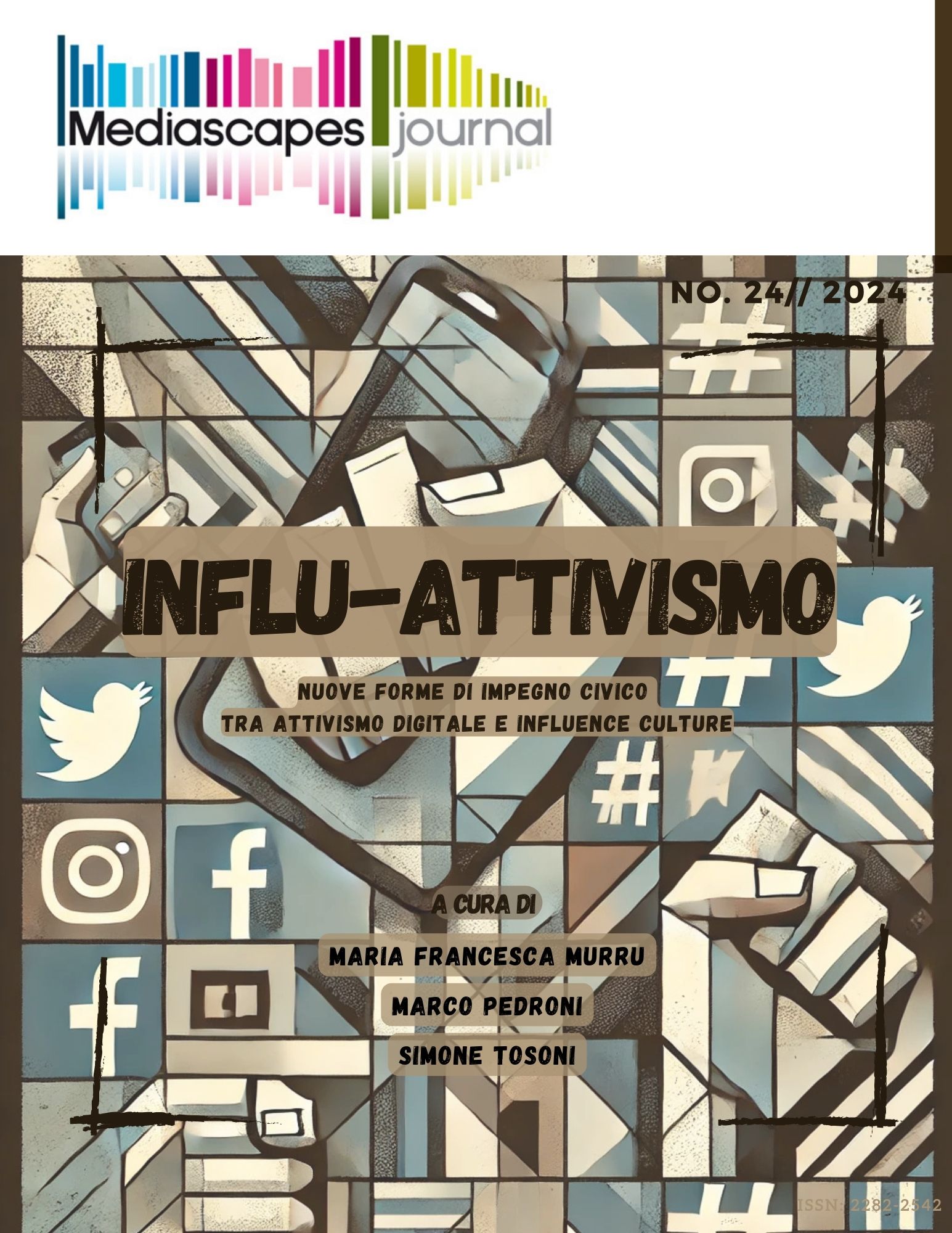Che genere di influencers
Tra femminismo e retorica
Parole chiave:
Influ-activism, digital platforms, feminism, content creatorsAbstract
This study aims to explore the implications and potential challenges arising from the (more or less instrumental) use of gender issues by Italian influencers. In particular, we map the pulpiness of the themes emerging from a sample of 30 Italian content creators who base most of their storytelling on feminist claims. The research highlights the trade-off between activism and self-promotion, resulting in the possible dilution of meanings associated with feminism and the trivialisation of social moments. By using a follow-the-medium approach, two digital platforms were selected: Instagram and TikTok. Through a content analysis, this study aims to reflect on the effectiveness and limits of the activism of some influencer in promoting agendas with feminist themes, comparing some case studies. That is, the gender rhetoric adopted by four Italian activists (Giulia Blasi, Irene Facheris, Giorgia Soleri and Federica Fabrizio) were analysed in order to investigate the connections between images of the female body, biopolitics, platform capitalism and neoliberal feminism. The interpretative hypothesis is that there is an inescapable connection between their storytelling and platform capitalism: neoliberal and popular feminism depends on and validates the interests of social media platforms. Consequently, the idea of the influ-activist and feminism arises as a discourse to be performed rather than as a (collective) movement, an issue focused on the individual and her self-branding practices. Practices that are not, however, to be considered purely normative, but nevertheless emphasise forms of empowerment, albeit individual rather than linked to structural dimensions.
##submission.downloads##
Pubblicato
Come citare
Fascicolo
Sezione
Licenza

TQuesto lavoro è fornito con la licenza Creative Commons Attribuzione 4.0 Internazionale.
Gli autori che pubblicano su questa rivista accettano le seguenti condizioni:
- Gli autori mantengono i diritti sulla loro opera e cedono alla rivista il diritto di prima pubblicazione dell'opera, contemporaneamente licenziata sotto una Licenza Creative Commons - Attribuzione che permette ad altri di condividere l'opera indicando la paternità intellettuale e la prima pubblicazione su questa rivista.
- Gli autori possono aderire ad altri accordi di licenza non esclusiva per la distribuzione della versione dell'opera pubblicata (es. depositarla in un archivio istituzionale o pubblicarla in una monografia), a patto di indicare che la prima pubblicazione è avvenuta su questa rivista.
- Gli autori possono diffondere la loro opera online (es. in repository istituzionali o nel loro sito web) prima e durante il processo di submission, poiché può portare a scambi produttivi e aumentare le citazioni dell'opera pubblicata (Vedi The Effect of Open Access).


